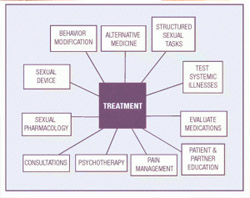
Glucose Metabolism and Regulation: Beyond Insulin and Glucagon
Glucose Metabolism. Energy is required for the normal functioning of the organs in the body. Many tissues can also use fat or protein as an energy source but others, such as the brain and red blood cells, can only use glucose. Glucose is stored in the body as glycogen.
Insulin and glucagon are potent regulators of glucose metabolism. For decades, we have viewed diabetes from a bi-hormonal perspective of glucose regulation. This perspective is incomplete and inadequate in explaining some of the difficulties that patients and practitioners face when attempting to tightly control blood glucose concentrations. Intensively managing diabetes with insulin is fraught with frustration and risk. Despite our best efforts, glucose fluctuations are unpredictable, and hypoglycemia and weight gain are common. These challenges may be a result of deficiencies or abnormalities in other glucoregulatory hormones. New understanding of the roles of other pancreatic and incretin hormones has led to a multi-hormonal view of glucose homeostasis.